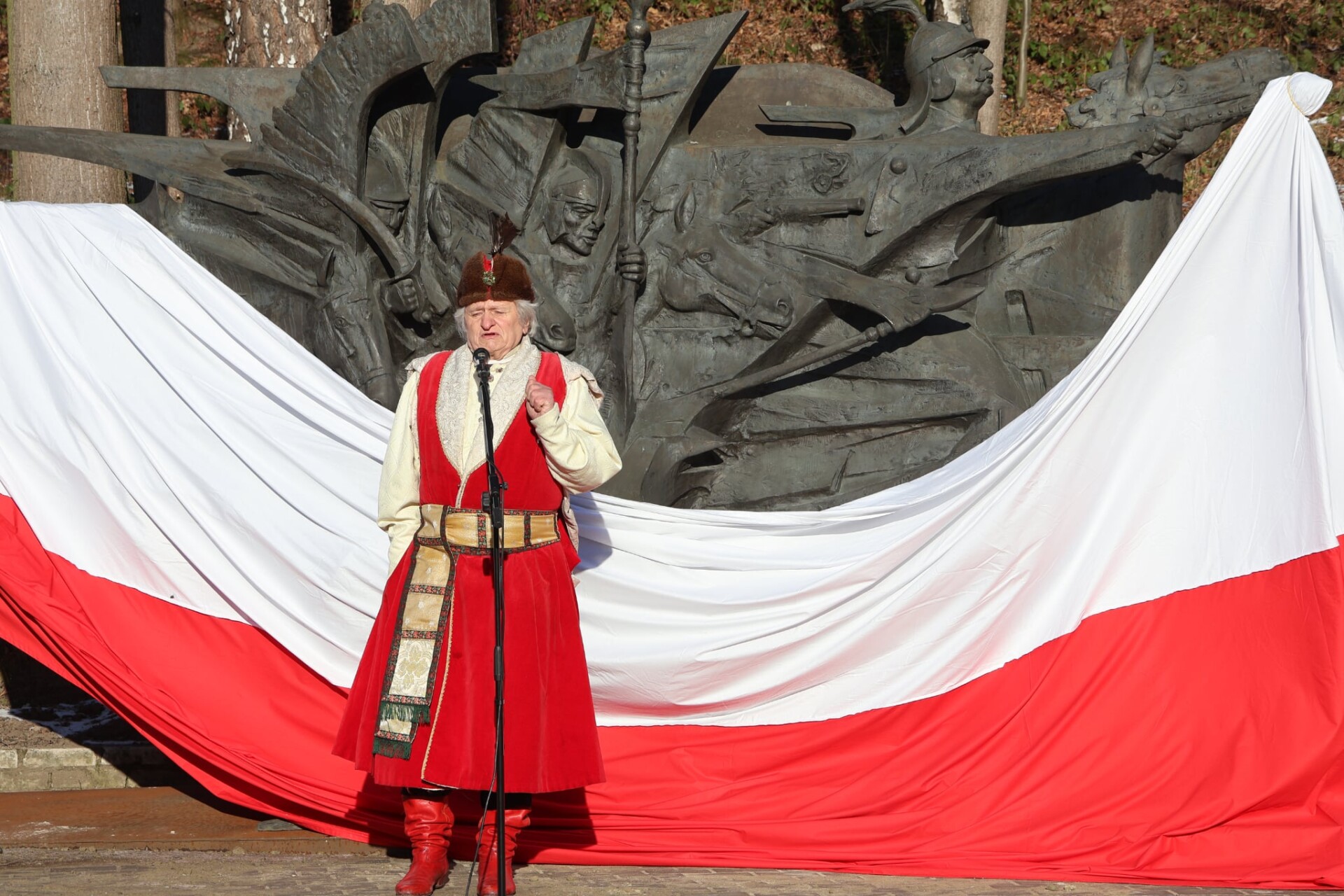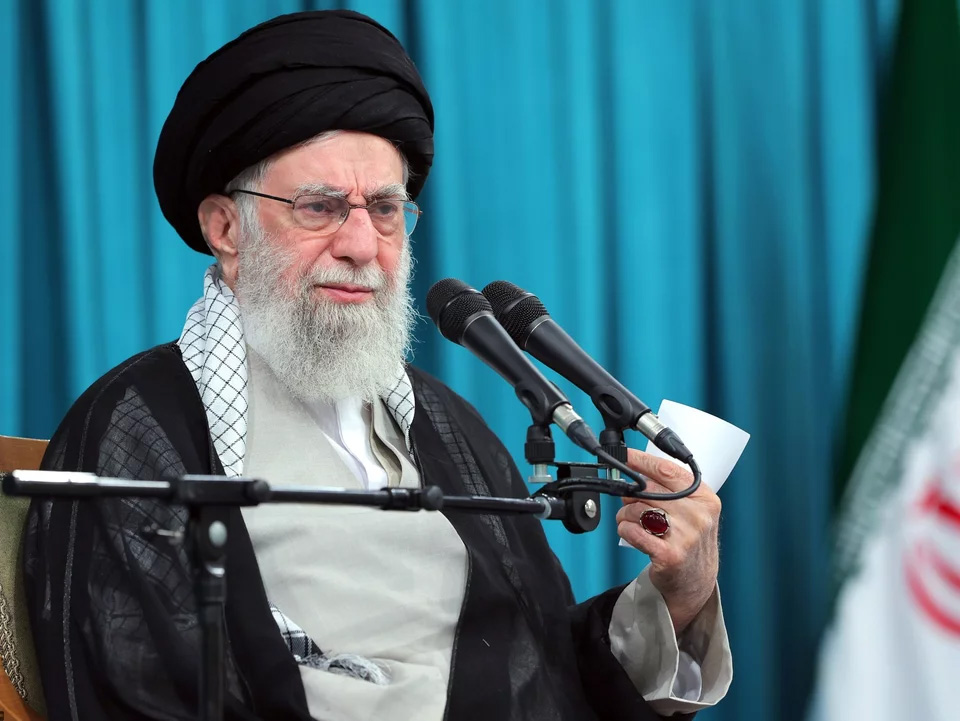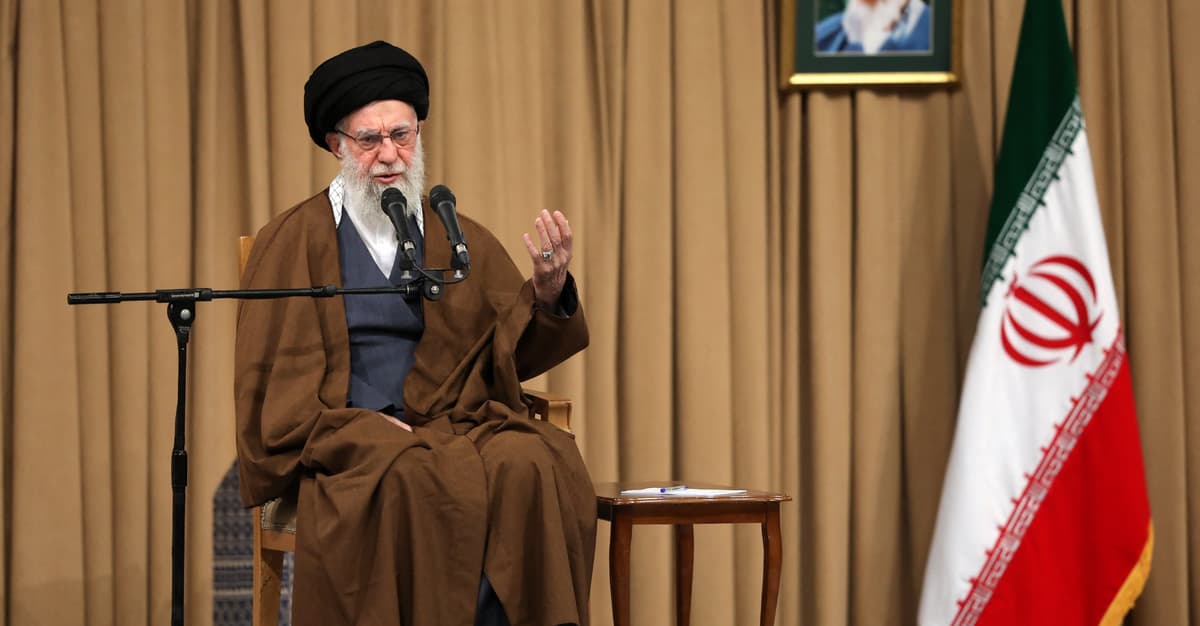Stabilization of the situation in the region torn by internal conflict – such a task was given to staff members from Poland, Lithuania and Ukraine during Exercise Three Swords. International exercise is a key test in a three-year training cycle of the Lithuanian-Polish-Ukrainian Brigade.

In the country of Radland, the situation has been unstable for many months. Separatist groups wanted intensively to secede the eastern part of the territory from it. The internal conflict grew from week to week, criminal organizations became active, and the local population was subjected to more and more frequent disinformation attacks. The situation was also destabilized by the neighboring country. The international community decided to intervene. The task of carrying out peace support operations within the coalition of Western countries received the Lithuanian-Polish-Ukrainian Brigade (LITPOLUKRBRIG) named after Grand Hetman Konstanty Ostrogski in Lublin. “We have received an order to prepare and carry out activities that will effectively and quickly ensure security to local communities,” says Maj Łukasz Sobieszek, Chief of the Brigade’s Operational Section, who explains the scenario of this year’s edition of international Exercise Three Swords.
Ongoing Response
The soldiers of the brigade’s command and staff immediately proceeded to planning activities in the eastern part of Radland. At their disposal, they had troops affiliated to LITPOL-UKRBRIG, which were quickly grouped in indicated areas, and immediately received an order to support the local community. Although initially the task seemed standard, the situation quickly began to get complicated. Separatist groups, noticing the action of the multinational coalition, benefited from the support of the neighboring state of Griseus, which in the border area led large military maneuvers, increasing the risk of conflict. Media reports and information coming from EXCON (Exercise Control), the exercise leadership, to the battalion staffs would constantly change the surrounding reality of exercise. A dynamic situation generated the need to issue Fragmentary Orders (FRAGO), which initiated the development of further decisions and concepts of action by subordinate battalion staffs.
“For the purpose of trainings, not only were media messages prepared, but a special newspaper was published. We used artificial intelligence to generate information that was then passed on to the commanders of the training subunits. During the week, about 160 such messages were created and taken into account when making decisions by the trainees,” says Capt Arkadiusz Wąsacz from the LITPOLUKRBRIG Training Section.
The battalions were constantly developing their own directions of action, implementing at the same time subsequent decisions of the LITPOLUKRBRIG command. The brigade staff on an ongoing basis would receive data from the commanders of subunits, and based on them they would decide, for example, whether to order searches or organize defense and protection of critical infrastructure, as such were the tasks for training troops.
The command of the Lithuanian-Polish-Ukrainian Brigade on an ongoing basis also analyzed other aspects, such as terrain or weather conditions, in order to conduct a mission in the safest possible way and not expose the troops. “The command would on a regular basis introduce the troops to a new situation, which in turn required from trainees restarting their planning process to adjust it to current events. Battalion commanders used, among other things, the reconnaissance team, which helped them make decisions along the progress of the conflict in their area of responsibility,” explains Maj Łukasz Sobieszek.
All the training battalions were involved in the final action. “The point was to coordinate own efforts within one area and at the same time, and effectively distribute work and tasks. This, in turn, was a guarantee of fluent and safe conduct of the operation,” admits Capt Oleksandr Molodtsov, Press Officer for LITPOLUKRBRIG.
Power of Three Swords
Interestingly, during this year’s edition of the Exercise, the LITPOLUKRBRIG staff played the role of the higher control (HICON) command, and at the same time exercise control management (EXCON). “It’s rather rare, because it is extremely difficult to carry out. It’s difficult to create exercises and at the same time be the body responsible for commanding them. However, we managed,” admits Capt. Arkadiusz Wąsacz.

Why such a solution? ”These are our most important exercises in a three-year cycle training, which is why we check not only the staff capabilities and skills, but also their cooperation with affiliated units,” admits Col Piotr Lisowski, Commander of the Lithuanian-Polish-Ukrainian Brigade. “Officers from three countries serve in our unit in a three-year rotation cycle. Command and staff training during Exercise Three Swords is a summary of this cycle, and an opportunity to confirm the interoperability of our brigades,” adds Col Lisowski.
The exercise management put great emphasis on adapting the scenario to the realities of the contemporary theatre of action. Hence, they played a significant role in the entire operation of unmanned aerial vehicles. “Ukrainian officers have repeatedly emphasized that it was a very important element of virtually any type of operation. Appropriate use of drones on modern battlefield gives a serious advantage over the enemy, and the experience of Ukrainians gained in the war with Russia in this matter are invaluable for us,” says Maj Łukasz Sobieszek. The added value of Exercise Three Swords was the integration of command support systems. “Every army uses its own system. We wanted to combine them, and it worked. It turned out that the data entered in one system was visible in real time in the latter. Thanks to this, we could operate without any obstacles, and collected a lot of observations as to in which direction we could expand this interoperability,” explains Capt Arkadiusz Wąsacz from the LITPOLUKRBRIG Training Section.
Mentors from Across the Ocean
Interoperability is a word conjugated in the context of Exercise Three Swords in many situations. LITPOLUKRBRIG is a special unit where three nations exchange their experience, build mutual trust, but above all, learn how to speak a joint military language. This joint military language includes the TPLF (Tactical Planning for Land Forces) process, i.e. a seven-step planning and decision-making procedure. It allows to properly prepare the command process and check the effectiveness of taken activities. “During these training, the staff would analyze step by step every aspect of the situation in order to properly prepare the operation and accordingly use the subdivisions remaining at its disposal,” notes Capt Oleksandr Molodtsov. The main trainee of this year’s edition was the command of the Prince Margiris of Lithuania Battalion, and the second were the commands of the 3rd Zamoyski Battalion of the 19th Lublin Mechanized Brigade and of the air assault battalion from Ukraine. Operating groups from other affiliated units played the role of support and security units.

The mentors during LITPOLUKRBRIG, the greatest command and staff exercises so far, were the Americans who had been engaged from the very beginning. “The representatives of the US Army took part in the Brave Band command and staff training, which directly prepared us for Exercise Three Swords. Now, we also had the group of Americans who monitored the course of the Exercise and focused on the mentoring of the main subunit,” says Col Piotr Lisowski. The representatives of the twin unit from Southeast Europe, i.e. South-Eastern Europe Brigade (SEEBRIG), also spent two weeks at the Lublin training ground. This brigade, based in Macedonia, also sent her observers. SEEBRIG is very much like LITPOLUKRBRIG, which is why we also try to be present at their trainings, we exchange opinions, we discuss, and draw conclusions that allow us to operate more effectively in an international environment,” explains Col Lisowski.
Bilingual Communication
However, many more conclusions were drawn after this two-week exercise. The primary one, which all our interlocutors mention, is that the staff brigades can command effectively, in this case – a peace support operation. The second one is about cooperation in an international environment. “It turns out that despite linguistic and procedural differences, cooperation with the Ukrainian battalion – who within themselves communicated in their native language and with the command in English – went smoothly. We now know that bilingual communication does not exclude effective functioning, flow of information and planning activities. And this is another proof of our interoperability,” says Maj Łukasz Sobieszek, and adds: “This is also the effect of a long-term and everyday functioning in our brigade, where Ukrainian officers work, communicating in English, and they learn all procedures based on NATO standards, which are later gradually introduced in the Ukrainian Armed Forces,” notes the Chief of the Operational Section of LITPOLUKRBRIG.
The greatest success of this year’s edition of Exercise Three Swords, however, was that ... it happened at all. “A decision to organize the Exercise in this form was taken early this year. We had extremely little time to prepare. Some of the preparation conferences were held virtually, but everything was ready on time,” says the commander of the Lithuanian-Polish-Ukrainian Brigades. “Due to the situation behind the eastern border, we failed to carry out these exercises on a full scale, i.e. with the troops. Instead, we focused on command and staff work, but it’s still a success that we could together, with the representatives of the three countries-founders of LITPOLUKRBRIG, carry out such a large undertaking and show that we are all the time »United for Peace«” emphasizes Col Piotr Lisowski.








